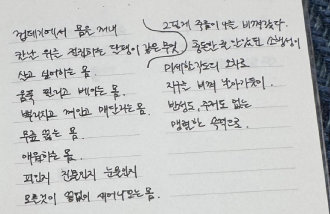Issuance of New Shares for Management Control Protection Takes Effect from March
Issuance of New Shares for Management Control Protection Takes Effect from March
Posted January. 03, 2005 22:45,
Starting mid-March, investors at home and abroad who possess more than a five percent shareholding of a certain company must report to the supervisory authorities whether their purpose of shareholding is acquisition of control or regular investment.
Foreign or domestic investors who make changes to the reported purpose of shareholding from regular investment to acquisition of control are banned from exercising their voting rights and buying additional shares for five days (cooling-off period).
Moreover, if foreign capital announces a tender offer to take over management control of a domestic company, the company at stake can hand over newly issued shares to its friends in order to defend its management control.
The Ministry of Finance and Economy (MOFE) said on January 3, As the reform bill of the Securities and Exchange Law, which includes the management defense mechanism for domestic companies, passed the Assembly plenary session on December 31 last year, the bill will be effective from mid-March.
MOFE Director-General of Finance Policy Kim Seok-dong firmly announced, Because we have fully reflected the governments proposal for management protection to the reform bill of the Securities and Exchange Law presented by Uri Partys Song Young-kil, this measure is de-facto legislation introduced by the government, and there will be no further management defense mechanisms.
The MOFE is planning not to introduce such defense institutions as graded voting rights system, in which more voting rights are given to large shareholders than to common stock counterparts, mandatory tender offer system, in which investors who possess more than 30 percent of share are obligated to buy the rest of the stocks, and the measure to permit the exercising of voting rights of their own shares.
Cooling-off period Applied to Every Purchase of One Percent or Higher Shareholding-
According to the reform bill, the interested company is allowed to recapitalize during the tender offer period to protect itself from the takeover threat if foreign and domestic investors launch a tender offer to acquire more than a five percent share of a company on the stock exchange or off the KOSDAQ Market.
This enables companies under management threat to issue new shares to friendly forces by allotment to a third party.
As the companies at stake can issue new shares at up to 30 percent below the market price through a resolution of board of directors, investors will have to secure more capital to take over the management control.
Investors at home and abroad will be prohibited from exercising voting rights and purchasing additional stocks during the five-day period if they change the purpose of shareholding to acquisition of control.
In addition, those in possession of more than five percent of shares are slated to be applied the cooling-off period at every additional one-percent acquisition.
Every Investor Holding Five Percent and Higher of Shares are Subject to File the Purpose of the Investment-
Director-General Kim said, If an investor has more than a five-percent shareholding to influence the managerial control before the reform bill takes effect in mid-March next year, he must report the fact to the supervisory authorities within five days ahead of the implementation.
Influencing the management control is associated with appointment, dismissal, and suspension of executives and regulation change, which are to be factored into the new law in detail, he explained.
Those who fail to report not only will be restricted from their voting rights but also be ordered to dispose of their shares.
The government estimates that some 5,000 investors have more than five-percent shareholding of the KOSDAQ or Korea Stock Exchange-listed firms; an estimated 100 of which are assumed to be foreigners.
The Business Sector Calls for More Defense Mechanisms-
The business community says insufficient to the so far-mentioned defense institutions.
The head of the corporate policy department of Federation of Korean Industries(FKI) Yang Geum-seung said, We welcome the change that takes into account at least some of the domestic companies concerns regarding the foreign capital, but more aggressive measures are required, such as the graded voting rights system that differentiates voting right weights depending on the amount of shares, which is currently implemented in Europe.
Business Administration professor Cheong Kwang-seon at Chung-Ang University said, The law allowing issuance of new shares during the tender offer period aims only to protect the existing management control and disregarding the rights of minority shareholders. In order to protect minority shareholders, the mandatory tender offer system needs to be introduced with more urgency, through which foreign investors who acquire a certain percent of share are obligated to buy the rest of the stocks owned by minority shareholders who attempt to sell them.
Chi-Young Shin Chang-Won Kim higgledy@donga.com changkim@donga.com







